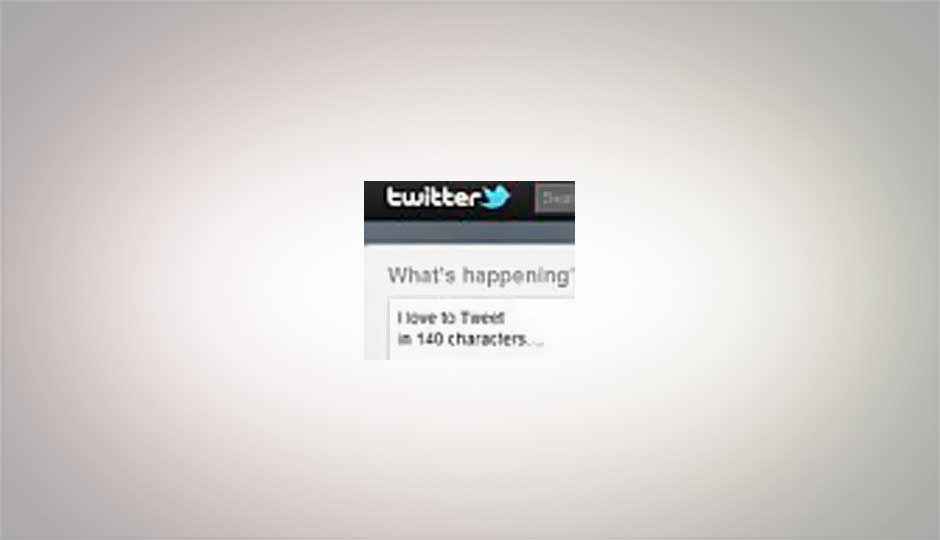Dear Twitter: Don’t change the 140 character limit

Some think Google ‘s type-all-you-want comment entry field is the way to go for our favorite micro-blogging service. I disagree.
 Survey
SurveyBrevity is the soul of wit. It’s also the heart and soul of Twitter, a service I, along with millions of other users around the world, have adopted as my own. It doesn’t take a lot to convey an idea or message: “Just setting up my twttr,”, “Arrested,” “@usairforce find a way to let Doctors without Borders planes land in Haiti…” I actually shortened the last Tweet, yet you still get the point. Lately, some people who’ve become enamored of the free-flowing, verbose conversations happening in the dewy Google have decided Twitter is wanting and that it’s time to raise the character limit.
One such proponent, Slate’s Farhad Manjoo, makes an eloquent argument for raising Twitter’s character limit. He argues that you can’t say a whole lot in 140 characters. He’s right that Twitter’s character limit is tied to the service it was launched on, the SMS text messaging system, which, after message handlers and the sender’s name, left just 140 characters to speak your mind. But then Manjoo makes a leap. “The 140-character limit now feels less like a feature than a big, obvious bug.”
Perhaps Manjoo’s Google experience has clouded his mind. Twitter was never intended as a conversation hub. Yes, it’s for sharing, some engagement, but is, necessarily, a broadcast and share medium. Longer posts, even the 280 characters he suggests, would undercut that intention.
[RELATED_ARTICLE]
On Google , where Manjoo posted a link to his column (with a 15-word, 94-character description: “Twitter should double its character limit! My Slate argument in favor of a 280-character limit.”), I immediately jumped on Google , said it was a bad idea and offered him a link to my post on how to craft 140 character tweets like a pro. Some agreed with me, but quite a few people agreed with Manjoo: You just can’t hold a discussion with 140 character posts, they argued. I think they’re right, but again, why would you want to hold a discussion on Twitter? In my Twitter experience, discussions are the worst part of the service and the longer they go on, the less useful they become.
If you accept that Twitter is a broadcast medium, then people are consuming your 140 character (or less) post and acting on it in a variety of ways: They’re following the link your provided. They’re retweeting to spread the broadcast message to their followers (while there can be overlap between follower lists, they’re almost always useful differences that help the message reach a new audience). They can quote the tweet and add their own commentary. The last one is the most difficult because you do have to figure out how to say something meaningful when most of the 140 character allotment has been used up by the original Tweet.
In the case of conversations on Twitter, they work differently. Usually someone posts something interesting and someone responds. The response doesn’t have the original tweet, just a little notation that it was “in reply to…,” which links to the original tweet. These conversations can go on for a while and sometimes expand to a number of Twitter members. The person outside the conversation will see a random post from this Twitter conversation in their feed and have absolutely no idea what it’s about. Conversation tends to clutter up Twitter and make it far less useful. This is not to say that I do not use Twitter for crowd-sourcing. I ask concise questions and get concise answers.
People who want to have conversations online have numerous options, including old-school forums, Facebook, and threaded comments on various Web sites. Google is the newest and easily most exciting one. I’m using it to say more and collect richer thoughts from all Google conversation participants. Oddly, I sometimes have to remind myself that I can post and respond in more than 140 characters (I see other people with this problem, too).
Someone argued in the Google thread that most people aren’t writers and expecting them to craft awesome 140-character Tweets is simply too much. I make my living as a wordsmith, why wouldn’t I love creating an excellent Tweet? It’s a fair point, but am I the only one who bemoans the poor quality of writing in virtually all electronic discourse? Tweeting in 140 characters is great training for anyone who wants to communicate. Sure, it’s always nice to prattle on in a forum, article comment space or, now , on Google , but why wouldn’t the average person want their prose to sing? Tight, concise sentences and thoughts make that so.
To further illustrate my point, I’ve taken a TweetDeck Feed page and replaced 140-character Tweets with 280-character ones (it’s rough, I know). Suddenly you halve the number of Tweets showing up in your feed at any given time. It saps the immediacy and readability right out of the social network.
So, please, Twitter, don’t listen to Mr. Manjoo. Google is for conversations. Twitter is for news and sharing. I can do it in 140 characters, and I think everyone else can, too. For those that can’t there’s always Google and Facebook.
Copyright © 2010 Ziff Davis Publishing Holdings Inc.
